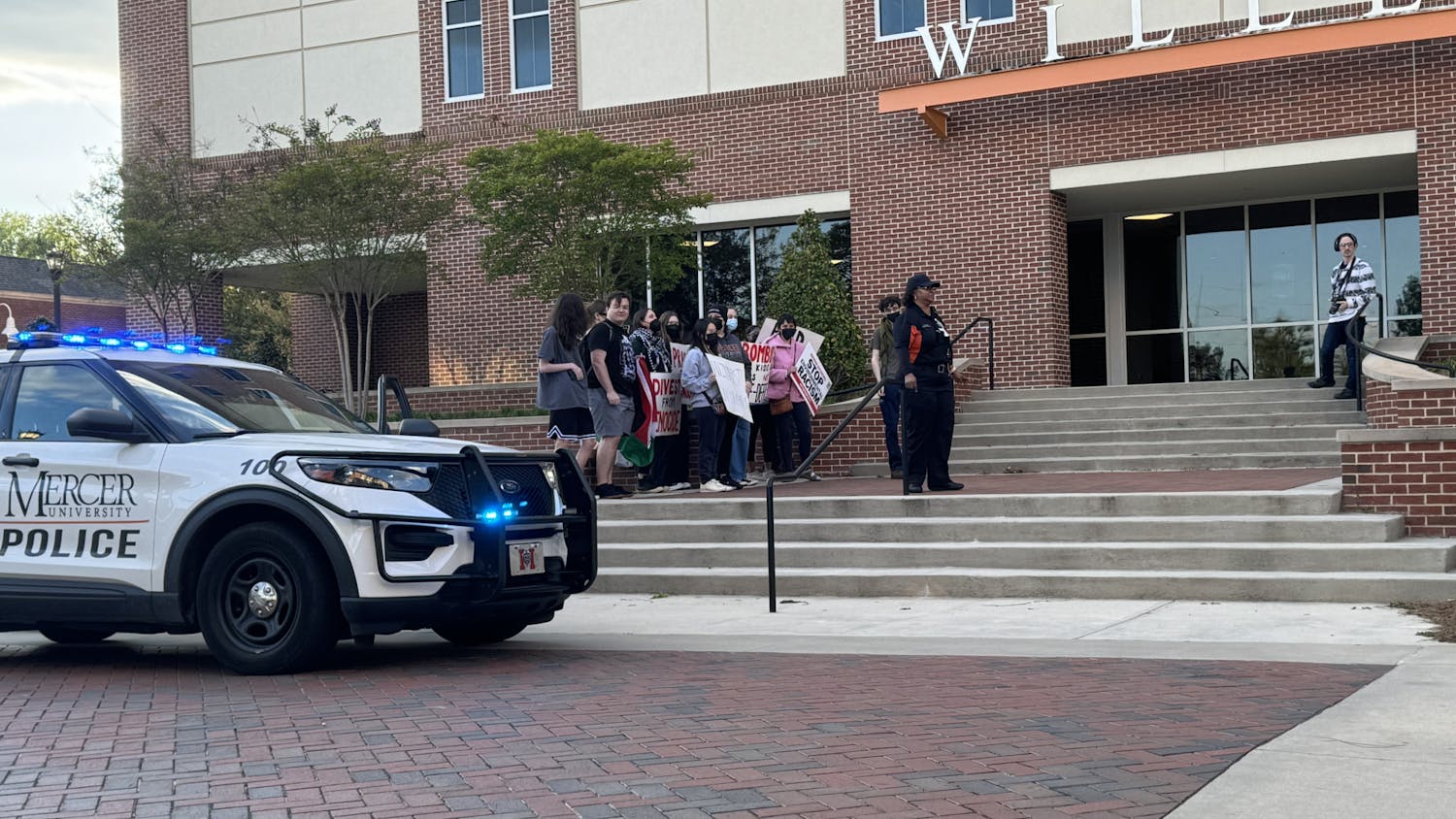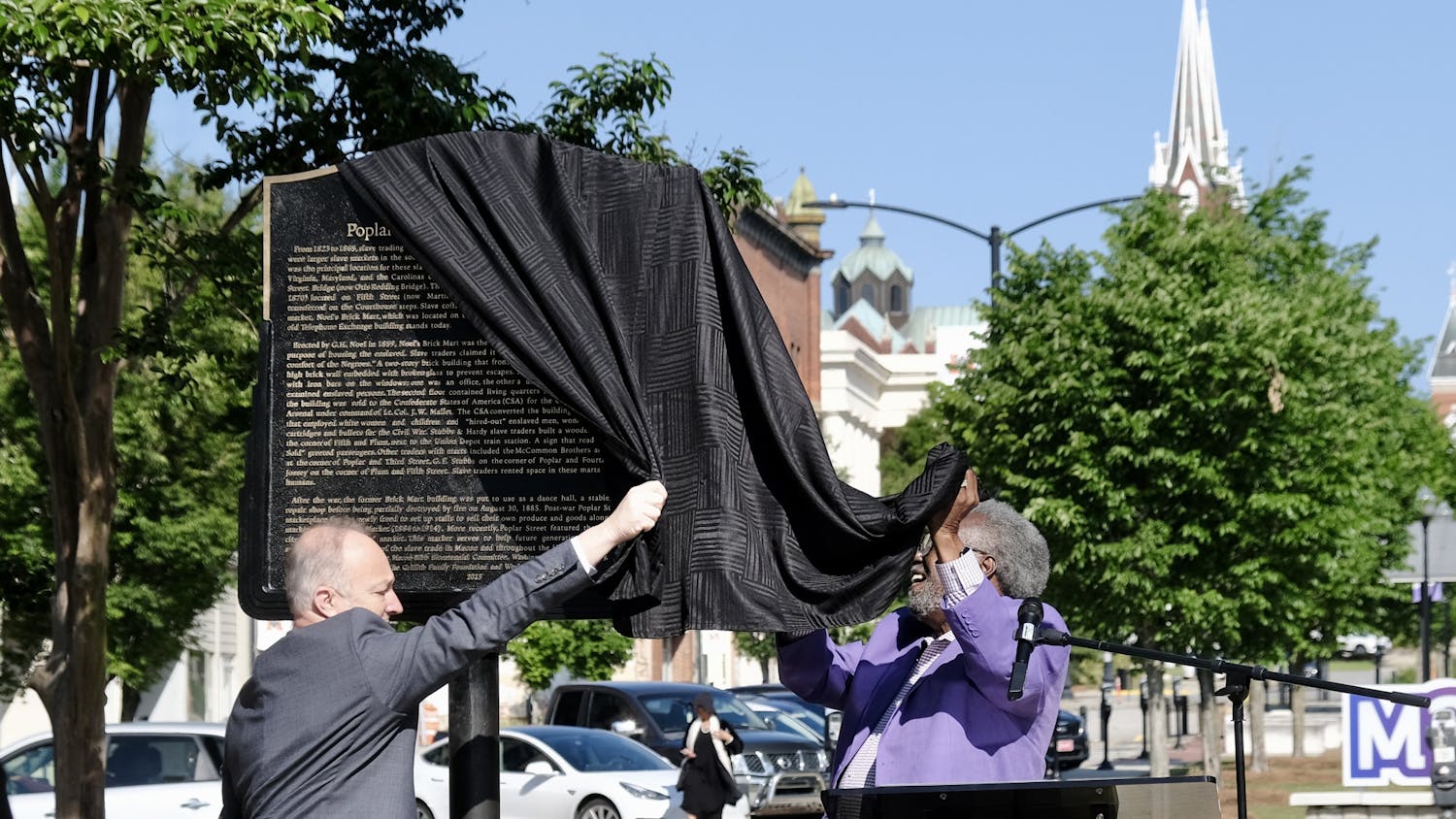Nearly 75 percent of undergraduate students in America are considered to be ‘non-traditional’ by the U.S. Department of Education’s standards, and the number of adult learners has risen over the past decade. Across campuses, Mercer University has established programs to help these students go back to school despite some challenges they may face.
Brian O’Donnell, 33, is a third-year mechanical engineering major who began his journey at Mercer in the spring of 2017 after not attending school for about 10 years.
“In the back of my mind, I always knew I was going to come back,” O’Donnell said. “I didn’t have any set time frame.”
O’Donnell previously attended the University of Georgia for three years as a full-time, traditional student, but left the school in 2007 to work. He decided to pursue his undergraduate degree once more in the spring of 2017 and enrolled at Mercer part-time for the semester while working a full-time job.
When his contract with his employer ended in August 2018, O’Donnell became a full-time Mercer student.
“It was gradual over time until I knew that I could take on more than I currently had,” he said.
During his time away from his studies, he worked as an audio technician for a company in Stone Mountain, Georgia before becoming an area sports representative for BodyArmor Sports Drink.
“That’s another thing that led me to coming back to school,” O’Donnell said. “It was a job in a technology-based field and realizing, ‘Oh okay, I am interested in this,’ or ‘I do have an aptitude in this degree that I started.’ You get that confidence.”
Getting the opportunity to gain experience in his preferred field before continuing his education reaffirmed his confidence in his prospective career and his decision to complete his degree.
“That’s what I realized now in my 30s: I just barely know now what I want to do as a profession for the rest of my life. I didn’t know what when I was 18, 19, 20,” he said. “It doesn’t mean I have to be a mechanical engineer for the rest of my life, but if it’s something I want to do or think I can develop in over the next five to 10 years, then it makes sense to have a degree in that field.”
When it comes to being a nontraditional student on an undergraduate campus, O’Donnell’s complaints are few. Besides not living on campus, his only worry is that he has more obligations than a traditional student would due to his age, but he said it was only a minor concern.
“I don’t want to seem like the eternal optimist here, but everything is what you make of it,” he said. “I don’t really see any negatives to it.”
Mercer received a $1.1 million federal grant in 2015 from the U.S. Department of Education “to improve retention, graduation and literacy among its nontraditional students,” according to The Telegraph.
The grant provides $220,000 annually for five years and scholarships for up to 140 students of the university. It also helped fund Student Support Services (SSS), a division of the federal TRIO program that provides disadvantaged students with resources such as peer tutoring tailored to adult students.
“Often, non-traditional students have to handle the additional pressures of effectively balancing work, family life and schoolwork,” according to the website for the Academic Resource Center (ARC), which provides programs for older learners. “Understanding the challenges you will face and becoming an active participant in overcoming those challenges will help ensure your academic success.”
Mercer has maintained programs for older students on other campuses as well.
Penfield College was established as The College of Continuing Education in the late 1980s specifically for adult students, and Mercer established the Educational Opportunity Center (EOC) to offer free services to adults.
According to the EOC website, most adult students chose to return to college to further their education beyond a high school diploma or GED, but some never completed high school and would like a GED while others are interested in changing careers.
Students like O’Donnell found that Mercer’s flexibility made going back to school easier.
“Mercer’s great in that they worked with me as being a nontraditional student or a student coming back after so many years,” O’Donnell said. “Their ability to move quickly and adjust to every case is very unique.”
Nontraditional students find academic success, confidence at Mercer

The Administration faculty here at Mercer help guide nontraditional students in returning to college.




